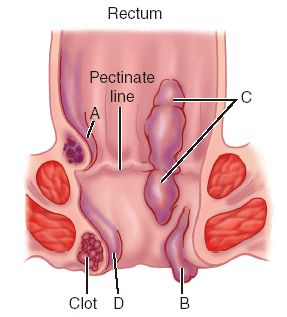
14 year old boy slashed in the belly at a hockey game the previous night. Came to ER, sent home. Up all night, can't sleep, severe abdominal pain. Mother brings him back to ER in the morning. He's pale, diaphoretic, HR 95, BP 105/75. CT abdomen/pelvis is done (see above). Obviously, the kid has sustained a major splenic injury with resultant massive hemoperitoneum. Now in the old days, you don't think twice, do not pass go, straight to the OR and whack out the spleen. Nowadays, you have to do a lot of thinking. Non-operative management of splenic trauma has become the standard of care, especially in children. Complications of splenectomy include the entity "overwhelming post-splenectomy sepsis" with an attendant mortality of close to 50%. The spleen actually has a useful immunologic function; helps us to clear the bloodstream of the "encapsulated" bacteria (streptococcus pneumoniae, haemophilus influenzae, etc). People who lose their spleen require lifelong immunizations to lower the risk of acquiring post splenectomy infectious complications. We've found that close to 90% of kids with blunt splenic injury can be managed conservatively without an operation.
So how do you decide when it's time to take a kid to the OR? Three main indications:
1. Hemodynamic instability
2. Diffuse peritonitis
3. Transfusion requirements (greater than 6-8 units of packed red cells over a 24 hour period.
Predictors of conservative failure:
1. Grade of splenic injury
2. Evidence of a vascular "blush" on CT scan
Why did I take this kid? The radiologist called and said he was was worried about a possible concommitant splenic artery transection in the area of the pancreatic tail with a suggestion of pancreatic injury. He also has a belly full of blood and was pretty tender, diffusely. Could I have waited a little while? Given him 4 units of blood and see what happened? Sure. He was hemodynamically stable. Even though he looked like a ghost. I could have tried conservative therapy for a short period of time. But I work in a community hospital. There's no "trauma team" to watch the kid. No chief resident to perform serial exams to make sure he wasn't deteriorating. It was just me. What if he decompensated at 3am? Given the CT report and the way the kid looked, I didn't want to mess around. So I took out his spleen. His belly had several liters of old and fresh blood. The spleen looked like a grenade had gone off inside it. Completely ruptured, with several areas of active bleeding. The pancreas was fine. The case took 15 minutes. He'll probably go home in a couple days. No more slap shots this year, but he should be good for next season.
There is data to suggest that this scenario is quite common; kids who come to a community hospital are more likely to get a splenectomy versus a kid who goes to a free standing pediatric hospital with pediatric trauma teams. And that makes sense. Specialized pediatric trauma units have a full contingent of doctors to watch these kids like hawks. I'm ok with that. I did the right thing, I'm sure. You have to practice safe surgery and the safest course is going to be different depending as much on where you practice as how you do it.



